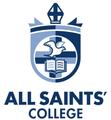Opinion Article

Effects of Early Offers
As we all know, schooling this year has been interrupted by safety measures to reduce the impact of COVID-19. The experience has been unique for different schools and different states. Every student has been impacted differently, but the Class of 2020 has been concerned about what this will mean for our final year of school.
The news for Year 12 students is that everyone will have the opportunity to complete the Western Australia Certificate of Education (WACE) and those eligible will receive an ATAR, despite disruptions.
There are still a few questions: Will there be any changes to the ATAR exams or WACE requirements? Will exams be postponed? Will any content be removed from the courses? Will the exams be shorter? Will accelerated students need to repeat to stop these changes affecting their scores? Could this create the push to reform the unfair ATAR system completely?
At the moment no one at All Saints’ can answer these questions. Decisions are in the hands of the School and Curriculum Standards Authority (SCSA), Tertiary Institutions Service Centre (TISC) and the Department of Education. Staff and teachers will be in contact with students as soon as they know more. However, those who know what they wish to study and where can get ahead in their tertiary enrolment.
This year, due to interruptions to schooling because of COVID-19, universities across Australia are opening offers to school leavers for early acceptance. Different universities have different policies. At this point there is no news on whether exceptional offers will be made in 2021 for Year 11 students affected. Early offers have been a possibility in the past; however, in previous years these offers were conditional meaning, should a student’s final ATAR be lower than expected so that it no longer met the required criteria, the offer could be revoked. At some universities this year, offers are unconditional and can be accepted immediately.
With many Year 12s at the College applying for and accepting these offers, what will it mean for studies over the rest of the year?
Ideally all Year 12 students enjoy and are interested in every course they study. However, we all know everyone has their preferred subjects and diverse talents, and everyone has subjects they struggle with. It might be tempting to slack off for the rest of the year, knowing your place in university is secure. But before you write off all of Semester 2, there are some things you might want to consider.
- Expected knowledge required for university: if you don’t finish your Year 12 courses or do not understand the material because you didn’t study this year, you could have difficulty starting out at uni. Firstly, your courses may be prerequisites and if you don’t finish you will need to complete the bridging course. Even if you don’t need the bridging course, you might have difficulty with material next year.
- If you change your mind about your course or university next year, you will need a final ATAR. These offers are great for now, but if you are trying to apply later (having completed few or no university units), chances are universities will want to see your final mark. In all likelihood allowances will be made for slight differences due to coronavirus, but a significant difference between your predicted and actual ATAR might set off some alarm bells. If a university can see that you stopped putting effort in as soon as your place was guaranteed, you may have difficulty getting another offer if you want it. A final ATAR may also be asked for on applications for jobs or internships.
- If you aren’t disciplined enough to continue to work hard for good scores as a Year 12 student who has received an offer, you may not survive the transition to university unscathed. Next year no one will tell you how much work to do, no one will care if you do not attend lectures, and there’s nothing to stop you from skipping assignments. As a uni student, the responsibility is yours to decide how much effort you put in, and if you can’t manage it now (if you stop trying as soon as the pressure is off), what will happen next year?
- Making the most of Year 12: this is our last year of high school and, although studying can be tedious at the time, coming out with marks you are proud of (and that you know you put in the effort to achieve) is not something you want to miss. Throwing this year away just because you know you have a place in university next year could be something you regret for ever.
The early offers this year are designed to reduce the impact of COVID-19 on students by allowing our marks from last year (unaffected by a global pandemic) to count for university entry, not to allow you to slack off.
To stop working and studying entirely, and just rely on the offer made to you is not a good idea, but an early guaranteed offer will make Year 12 a bit easier by taking some of the stress out of Year 12, especially the final ATAR exams.
The biggest pressure in the final year of high school is the final exams, because the score from one three-hour assessment makes up over 50% of your mark for the year (the mark is worth 50% of your final score in its own right, and is used for standardising, moderating and scaling). An unconditional offer takes the pressure off the three weeks of ATAR exams in November. This isn’t to say you shouldn’t try to do well, but some students work themselves into the ground in the lead-up to ATAR exams, and everyone gets anxious and stressed.
For many students – especially at All Saints’ – these offers have been greatly appreciated: we can be guaranteed places in preferred courses early! However, for some students across the state and some recent graduates, they’re not so welcome. Aside from the obvious difficulties with using a format designed for having completed Year 12, there are two main issues.
From current Year 12s: “I didn’t work hard in Year 11, I was going to do better this year!”
- To this, my response is that putting in minimal effort in Year 11 was your choice. Also, you will still have the opportunity to get an ATAR this year and you might even have an advantage over students who get early offers and stop studying.
- For anyone unable to work hard last year due to outside factors, all scholarships and programs to make up for educational disadvantage are still in play, so you will not be disproportionally affected.
From Year 12 graduates from previous years: “I couldn’t get in until after ATAR exams, why should they?”
- Using Empathy from ERIC, we should be understanding that circumstances this year are exceptional. Even if we had not missed any school, the situation is very uncertain, online learning is not equivalent to in-person learning, and different groups have been disproportionately affected.
- We know the ATAR system is inherently unfair (some students can pay for tutors, some schools don’t offer certain courses, some students underperform in exam situations, some schools have fewer resources available, and many other inequalities). This year students from schools with greater access to technology (including All Saints’) have a huge advantage and those with lower technological literacy a disadvantage. ATAR is a ranking mechanism and students’ ranks will be affected, depending on their school and their home. Using marks from Year 11 can help reduce this added unfairness.
- Different states are handling schools differently, so any student intending to study interstate may have different circumstances. For example, if I apply to study at Monash University in Melbourne, I will be competing against students mainly from Victoria who are yet to return to school for Term 2. Last year was not affected in the same way and does not bring the same inconsistencies in opportunities.
- Finally, we still earn the marks being used. This is not an ‘everyone gets in’ deal for Year 12s in 2020; universities are simply using the marks students received in 2019, not 2020.
Everyone has been affected differently by COVID-19 and everyone will have different ways of moving forward. I appreciate the new entry options from Australian universities are an effort to support the current Year 12 students. And I encourage other eligible Year 12s to take these opportunities when available for your preferred courses, but not to give up on Year 12 entirely.
Each university has different requirements, options, and pathways for early acceptance. For more information on your chosen courses and universities, visit their websites (and contact Future Students Representatives) or contact Ms Hill or Ms Itzstein.
Lexie O’Brien (Year 12)
